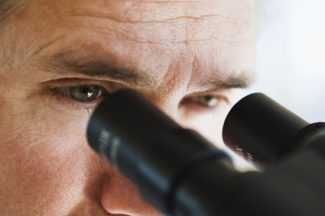 Thanks to its expertise in gene therapy vectors for correcting blood stem cells, Genethon is involved in two new clinical trials targeting cells: X-linked chronic granulomatous disease (also called CGD) and Fanconi anemia.
Thanks to its expertise in gene therapy vectors for correcting blood stem cells, Genethon is involved in two new clinical trials targeting cells: X-linked chronic granulomatous disease (also called CGD) and Fanconi anemia.
X-linked chronic granulomatous disease (CGD), a rare immune system disease, is triggered by a mutation of the CYBB gene which reduces the activity of an enzyme in the immune system cells. Destruction of microorganisms getting into the body is therefore impaired, causing severe infections and reducing life expectancy to some thirty years. Up to now, bone marrow transplant is the only available treatment but, for lack of donors, some patients cannot benefit one. That’s why Net47CGD, a European consortium coordinated by Genethon, has been established to develop a gene therapy.
“The approach is similar to the one for Wiskott-Aldrich syndrome (WAS), explains Anne Galy, director of the Inserm division Integrated Genetic Approaches and new therapies for rare diseases within Genethon and coordinator of the consortium. It’s about bringing, thanks to a lentiviral vector, the CYBB gene to blood stem cells in order to having it expressed, especially in phagocytes and making them functional so they kill the germs they swallow.”
All in all, the trial Genethon is promoting should involve 20 patients who will be treated in one of the four centres in Europe, among which the Necker – Enfants malades hospital in Paris. Patients have already been included in the United Kingdom. Furthermore, a similar collaborative trial has started in July in the United States. For all, the treatment is supplied by Genethon BioProd.
“Contrary to WAS, in CGD, the effects of the treatment show quickly, and so far, they are encouraging, Anne Galy indicates. However, a year of waiting is necessary to confirm the therapy sustainability through time. Indeed, we want to make sure it’s actually real stem cells that have been corrected and not only progenitors [Editor’s note: more differentiated cells], which have limited life span. The gene therapy treatment is being given in hopes of being permanent.”
Fanconi anemia is also a rare genetic blood disease, caused by the mutations of one of the 15 genes coding for FANC proteins in the Fanconi complex taking part in DNA repair.
“This disorder leads to cancers, but also to the death of blood stem cells, triggering the disappearing of red blood cells, and then of white blood cells, Anne Galy recounts. Patients can be treated with bone marrow transplant, but not without difficulty. On the one hand, they are very sensitive to chemotherapy necessary for this approach. On the other hand, diseased cells being particularly sensitive to stress, their laboratory handling is very tricky.”
This cell fragility makes the gene therapy approach developed by the European consortium, Eurofancolen, more complicated. However, Juan Bueren de Ciemat’s team in Madrid (Centro de Investigaciones Energéticas, Medioambentales y Tecnológicas) managed to develop a protocol for these very fragile stem cells.
Genethon, for its part, produced the lentiviral vector which enables to bring the normal version of the FRANC-A gene, which mutates for 65% of patients. A clinical trial has therefore been launched in Spain.
“This trial will proceed in two stages. The first one to check that enough stem cells can be rallied for patients, because we don’t know when they no longer have some. Then, if there is enough and all the requirements for the trial are there, the obtained cells are treated with gene therapy and administered back within the patient,” explains Anne Galy.
“So far, the results of gene therapy for Wiskott-Aldrich syndrome are very optimistic and we hope it will be the same for CGD and Fanconi anemia, the researcher concludes. However, caution should be exercised because the need to target real stem cells for the first disease, and the extreme fragility of the cells for the second one, make the treatment really difficult.”
Indeed, the results of the clinical trial for WAS were found to be very encouraging. Out of 7 patients treated with gene therapy in France and in England, one passed away because the treatment did not get the time to get effective, but the 6 others are getting better. They no longer suffer from eczema (dermatitis) or bleeding. One of them walks again and all have gone back to a normal life. Finally, considering the patients treated were from one- to sixteen- year old, it confirms that the treatment is efficient even with advanced disease.
However, doctors and researchers are still trying to explain why the speed for reconstructing the immune system varies from a person to another, in the same way as the count of corrected platelet, cells which take part in clotting.

